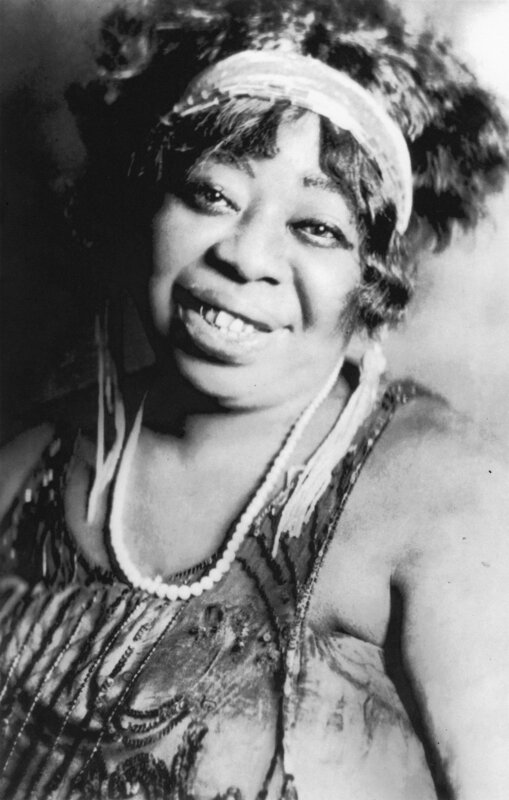We Are Everywhere: Lesbians in the Archive
Sapphic Blues
The Blues scene of the Harlem Renaissance provided Black women with a space to explore their sexuality and gender identity outside of the white supremacist gaze, which sexualized and criminalized Black women’s bodies. Many famous blueswomen, whose queerness was frequently an open secret, sang of relationships with women.
In 1925, Gertrude “Ma” Rainey (pictured right), the so-called “Mother of the Blues,” was arrested for hosting a “lesbian party” in her home. The next day, Bessie Smith (pictured left), another blueswoman and Rainey’s rumored lover, bailed her out of jail. Three years later, Rainey would write and perform the “Prove it On Me Blues,” responding to speculation about her sexuality with the words, “ain’t nobody caught me/you sure got to prove it on me.”
Prove it On Me Blues (1928)
Everything seemed to go on wrong
I looked up, to my surprise
The gal I was with was gone.
I mean to follow everywhere she goes;
Folks say I’m crooked.
I didn’t know where she took it
I want the whole world to know.
Sure got to prove it on me;
They must’ve been women, ‘cause I don’t like no men.
It’s true I wear a collar and a tie,
Makes the wind blow all the while.
Don’t you say I do it, ain’t nobody caught me
You sure got to prove it on me.
Say I do it, ain’t nobody caught me
Sure got to prove it on me.
I went out last night with a crowd of my friends,
It must’ve been women, ‘cause I don’t like no men.
Talk to the gals just like any old man
Cause they say I do it, ain’t nobody caught me
Sure got to prove it on me.
By 1930, Smith, Rainey, and blues singer Lucille Bogan (pictured below) were known as “the big three” of the blues scene. All three sang about sapphic love and desire. In 1935, Bogan recorded “B.D. Woman’s Blues,” singing, “comin’ a time, B.D. women they ain’t going to need no men.” “B.D.” was short for “bulldagger” or “bulldyke,” a Black slang term for a butch lesbian. The vocabulary used to speak about queerness in twentieth-century America was highly racialized. Jeanne Flash Gray, a Black woman who lived in Harlem during the 1930s, described that at the time, “we were still Bulldaggers and Faggots… only whites were lesbians and homosexuals.” “Bulldagger” was not pejorative, but rather “associated with physical strength, sexual prowess, emotional reserve, and butch chivalry.”
Lucille Bogan
B.D. Woman Blues (1935)
Comin' a time, B.D. women they ain't going to need no men,
'Cause the way they treat us is a lowdown and dirty sin.
B.D. women, you sure can't understand,
They got a head like a sweet angel and they walk just like a natural man.
B.D. women, they all done learned their plan,
They can lay their jive just like a natural man.
B.D. women, B.D. women, you know they sure is rough,
They all drink up plenty whiskey and they sure will strut their stuff.
B.D. women, you know they work and make their dough,
And when they get ready to spend it, they know they have to go.


